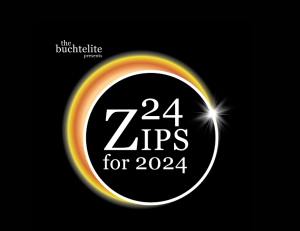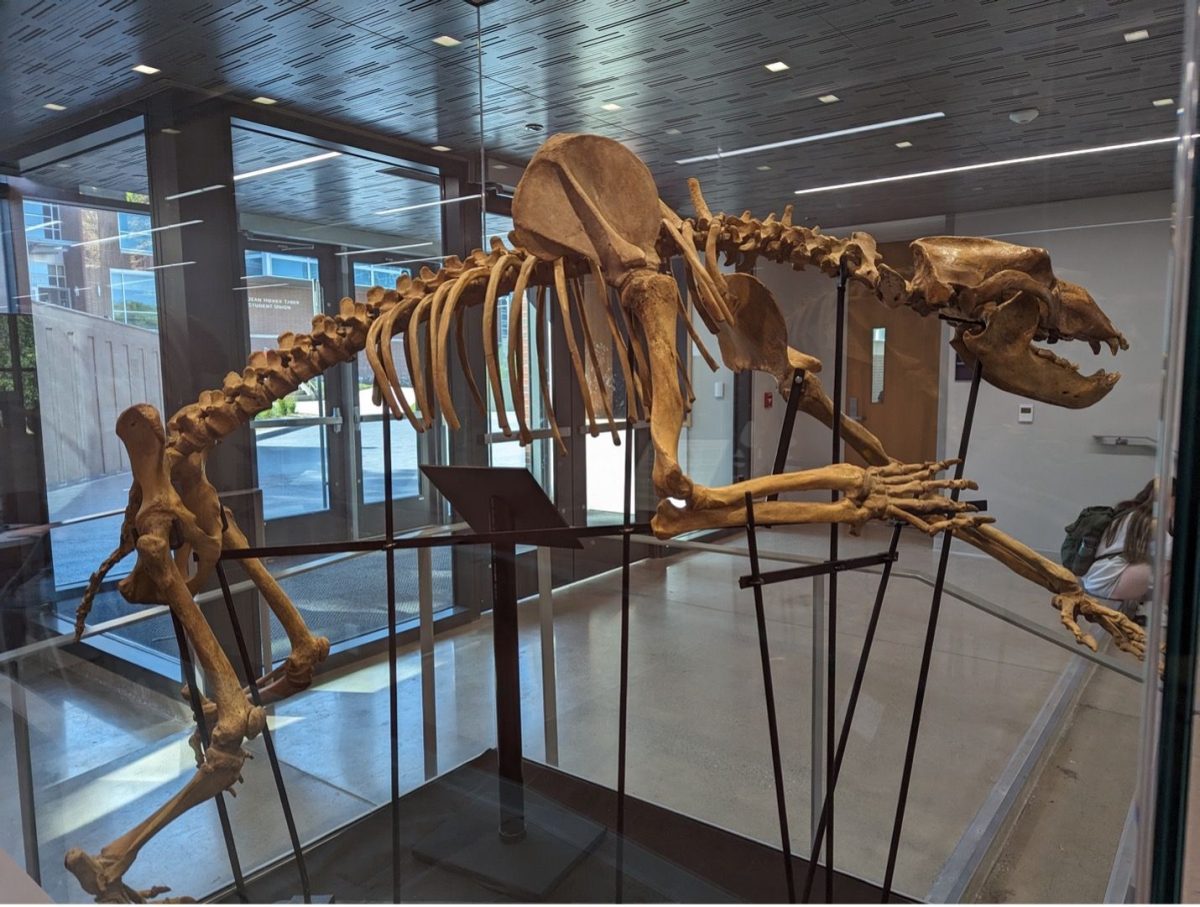Student opinions on Dining Services, administrative response
March 18, 2015
Numerous students were asked about their opinions on UA Dining Services. Though their meal plans differ, their opinions often coincide. After each question and its student responses is the response from Gary Goldberg, director of UA Dining Services and Administration. These responses contrast and serve as a model for how some students feel, and how those familiar with the matter—Dining Services administrators—respond.
Question one: Is the price for food on campus fair?
Becky Hajek (senior; gold flex plan, 10 meals per week, $750 Dining per semester): No, I think it’s over-priced. Cap’n Crunch is $8 at Zee’s. The food places at the Union are fair, but the places that you can get your own food, the markets, are ridiculously expensive. I get that some of the stuff isn’t cheap, but it’s like double what you would pay at Giant Eagle or Buehler’s.
Megan Bodenschatz (sophomore; blue flex plan, seven meals per week, $300 Dining per semester): No. For the cost of a meal plan, I think that the price of food on campus is unfair.
Daniel Sulenski (freshman; 15-meal per week plan, $75 Dining per semester): No. They inflate all the prices to over the amount of a swipe to ensure that you spend more than one swipe every time you go to the store.
Sarah Heberleing (freshman; unlimited Rob’s plan, $25 Dining per semester): In Zee’s, no. With my meal plan, I have a very small amount of dining dollars, so I can’t eat anywhere else really.
David Long (junior; blue flex plan, seven meals per week, $300 Dining per semester): Um, only in certain places. In Zee’s it’s kind of ridiculously high. Oreos are like $7.
Megan Rooney (sophomore; light blue plan, four meals per week, $250 Dining per semester): At the Union, yeah, but at Zee’s everything is way overpriced.
Gary Goldberg (director of UA Dining Services and Administration): Keep in mind that we are not Walmart, for example. We are The University of Akron. So our buying power is limited to the volume of business that we do at UA. So prices will generally be higher than most grocery-store-type items.
Question two: How would you rate the quality of food on campus?
Hajek: The quality is mid-grade, it’s not great. Rob’s is absolutely horrible, and everyone knows it except the incoming freshmen. And they are the only people that you see there. The Union Market is fine.
Bodenschatz: Usually it’s a hit or miss, some days the food is really good and sometimes it’s bad.
Sulenski: Very good—vast options. So that’s a good deal. There are lots of different choices.
Heberleing: In Rob’s, it’s a hit or a miss. Some of the stuff can be pretty good, other times…not so much.
Long: It’s not bad. Trackside is good, The Creamery is really good—I go to The Creamery all the time.
Rooney: Out of one to ten, a six—better than average but not great.
Goldberg: I routinely meet with students…have feedback nights, have dinner with students, and find many ways to survey to see what people think about Rob’s. I and my management team eat at Rob’s everyday, and I’m certainly a critic…if something isn’t right I’ll question it. But we make it a daily responsibility to maintain a very high food quality in all of our operations.
Question three: Does UA do an adequate job of promoting healthy eating?
Hajek: I think we need a lot more healthy choices on campus. Even the Freshens that they put into the Union isn’t 100 percent healthy. They really need a wider range of options other than just fried stuff. The easy quick stuff is cheap so they can get their money’s worth.
Bodenschatz: No. I think it would be really simple for them to come up with some kind of campaign but it hasn’t happened yet.
Sulenski: I wouldn’t necessarily say yes but there are healthy options if you are willing to look.
Heberleing: No. At Rob’s there is so much fried food and everything is prepackaged almost. There’s really nothing promoting eating healthy.
Long: No, they don’t. Even with all the food choices on campus, not really.
Rooney: Yeah. I think they like to put in a lot of different places like Freshens; and the Rec now has food and…healthy options. So I think they’re trying.
Goldberg: We have a partnership with the College of Dietetics and Nutrition where we provide free counseling for any students who need help with diet or wellness. Second, we have an associate director that is also a dietician that can provide that same kind of information. I think it’s really up to choice. Our job is to provide enough choices. Students…could eat other things, but they make a choice to eat what they like. So we have to have a balance, because if we had only healthy things…we would be very unpopular.
Question four: Should swipes roll over if you do not use them?
Hajek: If the swipes rolled over I might use them more because I’d be able to stock up on a bunch of stuff and not have to worry about, ‘Oh, well, if I want to go somewhere tomorrow after class I’m not going to be able to get anything.’ I think it would be nice just because then I could get a hull of things instead of going to pick something up everyday after class just to make sure I don’t let the [swipes] expire.
Bodenschatz: Absolutely, we are paying for those swipes so we deserve to have that money one way or another.
Sulenski: Absolutely. That shouldn’t even be a question.
Heberleing: Yeah. I don’t have swipes, but logically, if you are only eating on campus a couple times a week, it’s a waste to have all those extra swipes, and then to buy food at Zee’s, and then never eat the food you buy.
Long: Yes, absolutely.
Rooney: If you have the higher [meal plans], yeah; I always use all mine so I never really have that problem.
Goldberg: We benchmark the other universities that we consider our peers…we find generally that for them, [swipes] don’t roll over. And so…we also have the world’s most flexible meal plan. Given our limited amount of people on meal plans and the many choices that we provide students—we think what we are doing is fair.
Question five: Do enough locations take swipes or dining dollars?
Hajek: I think that a pretty fair amount of places take dining dollars for sure. Lockview takes our dining dollars, and I can go there and get a gourmet grilled cheese, so that’s really nice. I wish more places were able to take swipes.
Bodenschatz: On campus? Yes. And also off campus I think that they have done a really good job of finding a variety of places. Since we are more of an urban school, it is nice that…there are lots of restaurants around and that the university…lets students use their meal plans outside of campus.
Sulenski: I’d say yes, though I’d like to see more restaurants downtown be willing to cater to students, I guess. If they don’t, it’s not that big of a deal. It would be nice if restaurants downtown took more swipes.
Heberleing: Yes. It seems like every place around campus takes some kind of meal plan payment.
Long: I wish there’d be more places like McDonald’s and other fast-food places.
Goldberg: Years ago there weren’t as many choices on campus for dining. So [UA] extended that to local vendors—and it’s good for the students, so I support it from that standpoint. Selfishly, I wish there were more on campus and it was confined to campus, because there’s always value in keeping dollars on campus. So it’s not all positive; but from a guest standpoint it’s all positive. From an economic standpoint, it gets mixed reviews.
Question six: How do you feel about an independent contractor running UA’s Dining Services?
Hajek: I honestly don’t know…I feel like they might be able to do a better job. But by the same token, they could come in and just make a quick buck off college students. I think it would be nice if I knew what the contract of the other company would be. I think students should have a say in it. We’re paying for it. I think we need a voice in more things here.
Bodenschatz: I think it could be a good thing if it changes in the students’ favor. But if it doesn’t really help us out with changing the pricing, it’s kind of pointless. We might as well keep those jobs on campus with the people that are already there. I’d hate for someone to lose their job.
Sulenski: I think that would be wonderful…They might still try to make money, but they might also be more fair so that students still buy stuff. Because if they don’t cater to the needs of the students, they won’t make as much money.
Heberleing: I think it would be better. I know that at a college back home where I live, Eat’n Park runs the cafeteria, and the food is of a much better quality.
Long: I don’t have much of an opinion on it; I haven’t heard much about it. But that’s a difficult job to do. I wouldn’t necessarily mind…it doesn’t really matter.”
Goldberg: I personally have worked in the contract world and now I work in a self-operated university. I think there’s great value in the fact that we are university employees; there will not be a management firm that could be as nimble and responding to student and university needs as a self-operated dining service. As far as the economics of it, there is no contract a food service firm is going to provide with the same amount of return to the university that we do. You talk about millions of dollars that we give back…every year. And from our relationship with students, it’s not the same when it’s an independent company. They’re not bleeding blue and gold…it’s just a different dynamic. I think [outsourcing] is a very short-sighted approach to something that’s not actually a problem.
Question seven: What do you like most about UA’s Dining Services?
Hajek: What I like most is the flexibility that is there. It isn’t completely rigid- I don’t have to just eat at one place, which is nice. And I can go off campus too. There are a lot of places that take [dining dollars] in the area.
Bodenschatz: The nicest thing, I think, is that we can use our dining dollars and our on-campus money off campus. So we can go to Lockview for a fancy dinner if we want.
Sulenski: Obviously the convenience is nice. There are lots of stores located all around campus. And having access to them with your ZipCard is nice.
Heberleing: I do like late night. Late night is really good. The food is better quality. It’s open for a good long time and they are pretty quick about making food, even though there are tons of people who go. The Union Market is good too.
Long: Partly the fact I work for them; they seem to know what they’re doing.
Rooney: I like the dining dollar aspect and how you can use them at places off campus too. That’s cool.
Question eight: What do you like least about UA’s Dining Services?
Hajek: The thing that I like the least is that I don’t have the choice in just getting dining dollars anymore. I have to get swipes that I know I’m not going to use and that’s a waste of my money.
Bodenschatz: It’s really frustrating when you are paying so much money for a meal plan but you don’t get that much money back through the value of your swipes and how much money is put on your dining dollars account.
Sulenski: The over-inflated prices and the hours of some of the restaurants.
Heberleing: The limited amount of food in Rob’s. I end up eating a lot of wraps and a lot of pizza.
Long: They just do stuff for profit—not the right thing, but I feel like that’s how business is run.
Rooney: Probably just Zee’s prices.











